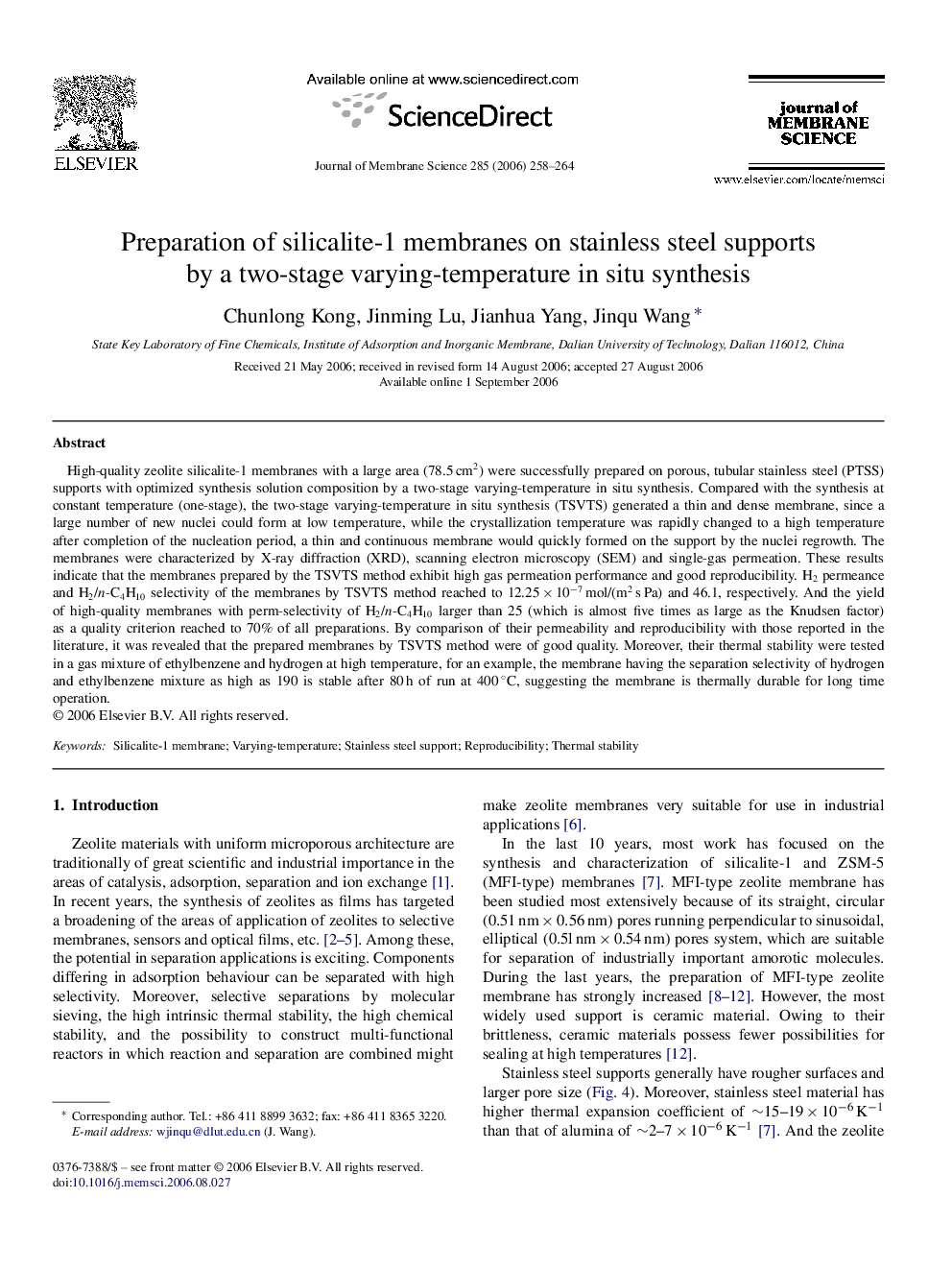| Article ID | Journal | Published Year | Pages | File Type |
|---|---|---|---|---|
| 639097 | Journal of Membrane Science | 2006 | 7 Pages |
High-quality zeolite silicalite-1 membranes with a large area (78.5 cm2) were successfully prepared on porous, tubular stainless steel (PTSS) supports with optimized synthesis solution composition by a two-stage varying-temperature in situ synthesis. Compared with the synthesis at constant temperature (one-stage), the two-stage varying-temperature in situ synthesis (TSVTS) generated a thin and dense membrane, since a large number of new nuclei could form at low temperature, while the crystallization temperature was rapidly changed to a high temperature after completion of the nucleation period, a thin and continuous membrane would quickly formed on the support by the nuclei regrowth. The membranes were characterized by X-ray diffraction (XRD), scanning electron microscopy (SEM) and single-gas permeation. These results indicate that the membranes prepared by the TSVTS method exhibit high gas permeation performance and good reproducibility. H2 permeance and H2/n-C4H10 selectivity of the membranes by TSVTS method reached to 12.25 × 10−7 mol/(m2 s Pa) and 46.1, respectively. And the yield of high-quality membranes with perm-selectivity of H2/n-C4H10 larger than 25 (which is almost five times as large as the Knudsen factor) as a quality criterion reached to 70% of all preparations. By comparison of their permeability and reproducibility with those reported in the literature, it was revealed that the prepared membranes by TSVTS method were of good quality. Moreover, their thermal stability were tested in a gas mixture of ethylbenzene and hydrogen at high temperature, for an example, the membrane having the separation selectivity of hydrogen and ethylbenzene mixture as high as 190 is stable after 80 h of run at 400 °C, suggesting the membrane is thermally durable for long time operation.
